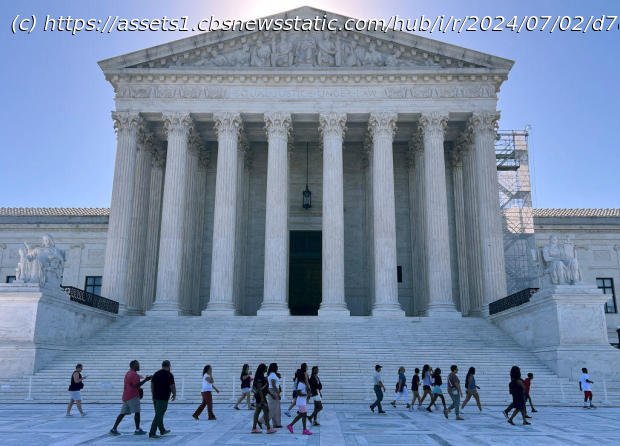The Supreme Court ordered lower courts to take another look at challenges to several federal and state firearms restrictions.
The Supreme Court on Tuesday ordered lower courts to take another look at challenges to several federal and state firearms restrictions in the wake of its that bans people subject to domestic violence restraining orders from having guns.
The cases had been pending before the court for months while it considered the constitutionality of the 30-year-old law that disarmed alleged domestic abusers. In an 8-1 ruling last month, the court found that the Second Amendment allows an individual who poses a credible threat to the safety of others to be banned from having firearms temporarily.
On the heels of that decision, the Supreme Court tossed out lower court rulings invalidating two separate federal firearms restrictions as applied to their individual challengers, as well as a lower court ruling that upheld provisions of a New York law. It sent the cases back to the lower courts for additional proceedings based on its latest ruling. The federal gun restrictions
The federal laws at issue in the legal battles have been on the books for years, but came under renewed scrutiny in the wake of the that imposed a new framework for evaluating the constitutionality of gun restrictions. In that ruling, the court said that for firearms laws to comply with the Second Amendment, the government must identify historical analogues that show the measure is consistent with the nation’s history and tradition of firearms regulation.
In one of the cases, known as Garland v. Range, the U.S. Court of Appeals for the 3rd Circuit said a federal law prohibiting convicted felons from having guns was unconstitutional as applied. The challenge to the felon-in-possession ban was brought by Bryan Range, a Pennsylvania man who pleaded guilty in state court to making a false statement about his income to obtain food stamps. Though violators may face up to five years in prison, he was sentenced to three years of probation. Range’s conviction disqualified him from having guns.
Range sued, arguing that the felon disarmament law violates the Second Amendment as applied to him. A federal district court ruled for the government, but the full 3rd Circuit said the Justice Department hadn’t met its burden of showing that applying the law is consistent with the nation’s historical tradition of firearms regulation.






